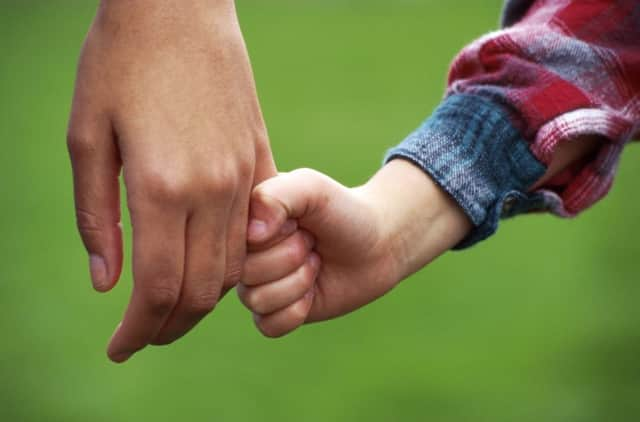Darren McGarvey: What you need to know about '˜work-shy scroungers'


Early experiences affect life expectancy, social mobility and the chance of developing mental and physical health problems. They may have an impact whether someone regards their environments as threatening or supportive and shape how they connect and attach to their partners and children.
They may affect educational attainment as well as the ability to form friendships and socialise. They may even affect the age at which people have children and how many children they have, their chances of going to prison or becoming homeless as well as the likelihood they will become either a victim or a perpetrator of violence.
Advertisement
Hide AdAdvertisement
Hide AdGiven that childhood exerts such gravity over the course of so many lives in terms of learning, health and opportunity, early experiences are clearly an important public health issue. Much of the recent research in this area has been referred to as Adverse Childhood Experiences (ACEs). It’s common knowledge that a loved and well-nurtured child stands a far greater chance of succeeding in life.
Yet for too many, success isn’t getting to university; it’s avoiding getting booted out of school and ending up in prison. For those who experience trauma and neglect as children, the concept of opportunity and the very meaning of success, aspiration and responsibility can fundamentally differ from that of more emotionally regulated people. Life is often about seeking refuge, at the expense of all other concerns, from a world you’re been conditioned to believe is hostile and dangerous.
It’s at this precarious intersection – between the state and the socially deprived communities it hopes to upskill, incentivise or correct – that government policies and initiatives can run haplessly aground.
Take Universal Credit, which relies on the threat of economic humiliation as an incentive for getting people into work; its socially toxic tentacles operating behind a veil of alleged convenience and efficiency. The current system only recognises someone who can’t get a job as a scrounger, a potential suspect who ought to be sanctioned. Like schools, you are likelier to find a cop or a security guard patrolling a job centre than you are a psychologist or a doctor. We rarely stop to consider what may have occurred earlier in the lives of those who just can’t seem to get it together.
The horrors they witnessed as kids, the terrifying things that were done to them, either intentionally – like being physically hit, verbally abused or raped – or by omission – like malnourishment, inadequate supervision or exposure to chaotic or violent environments.
Many of the people we vilify as a society, from the long-term unemployed, to addicts and the homeless, are victims of serious childhood neglect and abuse. It’s the toll that experience has taken on them that makes life harder to manage.
Many who experience trauma and neglect will differ from more emotionally regulated people in how they interpret reality and respond to social cues. They will live under a cloud of psychosocial stress, impairing basic cognitive functions like problems solving, decision making, risk assessment, negotiation and collaboration. They will live in anticipation that bad things are about to happen. Then we wonder why so many people can’t even bring themselves to open the threatening DWP letters, which are formatted and worded to baffle, humiliate and intimidate them.
To navigate hostile, dangerous and unpredictable terrain, humans naturally adapt by becoming hypervigilant. It’s like a spider-sense, that allows us to take action that may reduce potential threats.
Advertisement
Hide AdAdvertisement
Hide AdImagine what it’s like when you go to the dentist. You sit in the chair, under the illusion you are calm. You listen to the radio playing and observe the poster contentiously placed on the ceiling above. Yet, despite your best intention to remain calm and rational, the second the drill is placed in your mouth, you will suddenly find your entire body arched up, every sinew straining, every piece of connective tissue knotted. You forget about the radio and poster and all you can think about is the drill. That’s the physical response of stress, overriding your conscious mind to prepare you for conflict. It’s a primal response. A natural response.
But for kids who live through abuse and neglect, they experience stress to such an extent that it becomes natural to remain vigilant at all times. The price of this hypervigilance is that later in life many become maladapted to normality; placed in a state of constant alert, finding it difficult to relax or concentrate. An emotional state in which anxiety, alarm and dread are the default emotional settings.
The conditions which give rise to ACEs extend beyond the home – often typified by risk factors like family disorganisation and breakdown, parenting stress or social isolation – and into the wider environment, where social deprivation finds expression in community violence, concentrated disadvantages like a high unemployment rate, political exclusion, residential instability and a high density of shops selling high-calorie, nutrient-devoid food, alcohol retailers, gambling facilities and drug dealers, acting as temporary stress management solutions.
Of course, when the threats dissipate, and the stress subsides, what these people are left with are the self-insistent, unhealthy coping strategies and compulsions they adopted to cope when adversity was more severe. The traditional mechanisms of support and correction, from schools to prisons, simply aren’t working for far too many people. We must become more sophisticated in our understanding of how adversity can disfigure our better nature. ACEs provide a body of research which people on all sides of the political spectrum should be able to get behind because it’s not about ideology, but rather, evidence.
The fact is, many traumatised children, likelier to become socially excluded later in life, often have far more in common with war veterans than they do with their social workers.
